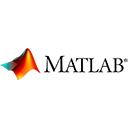Introduction
Clustering is a fundamental data analysis technique used to group similar data points together. In this guide, we'll provide a quick start tutorial on clustering data in MATLAB. We'll cover key concepts and provide sample code and examples.
Getting Started
To get started with clustering in MATLAB, you need to install MATLAB and understand the basics of data clustering. Here's how to get started:
% Example: Installing and launching MATLAB
% Describe the process of installation and launching MATLAB
Importing Data
Clustering analysis starts with data. You'll need to import your dataset into MATLAB for analysis.
% Example: Importing data into MATLAB
% Explain how to load and preprocess data
K-Means Clustering
K-Means is one of the most widely used clustering algorithms. We'll show you how to perform K-Means clustering in MATLAB.
% Example: K-Means clustering in MATLAB
% Describe the steps for K-Means clustering and visualizing results
Hierarchical Clustering
Hierarchical clustering is another clustering method that creates a hierarchy of clusters. We'll demonstrate how to do it in MATLAB.
% Example: Hierarchical clustering in MATLAB
% Explain the process of hierarchical clustering and dendrogram visualization
DBSCAN Clustering
Density-Based Spatial Clustering of Applications with Noise (DBSCAN) is used to identify dense regions in data. We'll showcase DBSCAN clustering in MATLAB.
% Example: DBSCAN clustering in MATLAB
% Describe the steps for DBSCAN clustering and visualizing clusters
Evaluation and Visualization
Once you've performed clustering, you need to evaluate and visualize the results. MATLAB provides tools for this purpose.
% Example: Evaluation and visualization in MATLAB
% Explain how to assess cluster quality and create visualizations
Conclusion
Clustering is a valuable technique for data analysis, pattern recognition, and more. MATLAB simplifies the process and offers various clustering algorithms to cater to different data types and structures.
Explore the capabilities of MATLAB for clustering data to uncover hidden patterns and insights within your datasets!

